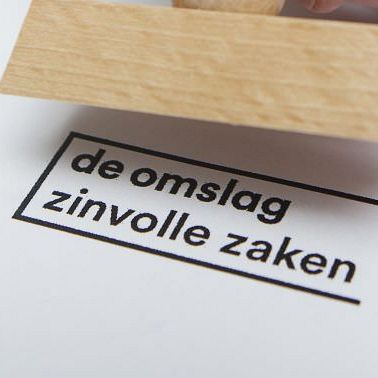"It is our aspiration that all people of Amsterdam with disabilities have an opportunity to become participants in our city"
Investigation of the effectiveness of interventions that increase participation of people with severe occupational disabilities.
Goal of the investigation
The goal of the investigation is to create insight as to which interventions contribute to an increase of social participation as well as independence. Additionally examined will be in how far these interventions stimulate the growth of a client towards taking steps to (compensated) employment. The results will give insight to all involved about the effectiveness of this assistance. Thereby, clients and their guidance counselor as well as specialists from the RvE Participatie (a Dutch project management and development consultancy) can gain more understanding of which method is most suitable. Service providers and the community will also be able to use this information to customize their supply as well as tailor their funding.
In short, the objectives are:
*to provide insight into the effect of intervention on independence and on the rates of progression of the target group towards participation and preparation for employment;
*to determine the prerequisites required to ensure successful and effective interventions;
*to provide insight into the costs and benefits of intervention
The insights produced by the investigation will help service providers strengthen their inventory and will assist the municipality in making solid and informed decisions about the procurement of future interventions.
Target group parameters
At the start of the investigation, the specific target group will be determined. Undoubtedly, the day services group of the (O)GGZ (a Dutch organization on disabilities)will be included in this study. It will be further examined if day services for those with intellectual disabilities will also be included in the investigation. Decisions on this matter will be made before the investigation begins and no later than December, 2014.
Investigation procedure
The objective is to depict 20 participation interventions and to determine what they can mean to the clients. Out of this group, 8 interventions are chosen for closer examination. Examined specifically are the effects of intervention: on independence, quality of life,health experiences and “self-efficacy” in relation to work, employment and community participation. As much as possible, use is made of earlier gathered research such as information from the Self-Reliance Matrix (ZRM). This way all efforts are made to minimize any burden on those involved. There will be two measurements, one baseline measurement and a
follow up measurement. The base measurement will be taken in the middle of January, 2015 and the follow up measurement in the middle of October, 2015. These measurements will be performed by the client manager or the guidance counselor (welfare worker) of the clients. The difference will then be reviewed and analyzed by the researchers. Two clients of each intervention will be interviewed in greater detail by TNO to explore the observations more precisely.
During the last phase of the investigation a costs and benefits analysis will be made of the interventions. This will be based on the MKBA (Social Costs and Benefits Method) used by the municipality of Amsterdam to review projects and develop policies.
Investigation organization
TNO, with project manager Joost van Genabeek, will be the executor of the investigation. De Omslag will be responsible for ensuring that the investigation is streamlined to what is current in practice. Esmeralda van der Naaten and Jaap Kemkes, from De Omslag, are in charge of assembling a support group, aligning with the field and gathering findings and counsel. The municipality (DWZS, Nienke Boesveldt) is the commissioner of the investigation.
A support group will consist of representatives from the Gemeente GGD, TNO, de Omslag and clients. After selections have been made pertaining to the interventions, additional enhancements may be decided on.
Communication
With this announcement we initialize the communication pertaining to this investigation. De Omslag will engage the field at certain moments through the following:
*presentations of the investigation in the network meetings for participants of De Omslag on Monday Dec 1, 2014
*sounding board sessions with directly involved members such as client managers as well as project counselors.
*fine tuning by the city during management deliberations with suppliers
*feedback from the results at a bigger meeting at the conclusion of the investigation.
Furthermore the results of the investigation will be presented at a work conference for representatives of the city of Amsterdam and intervention providers as well as during a European assessment meeting.
Would you like more information regarding this investigation?
If you’d like more information about the investigation you can contact De Omslag at 020 4860149 or by e-mail.

